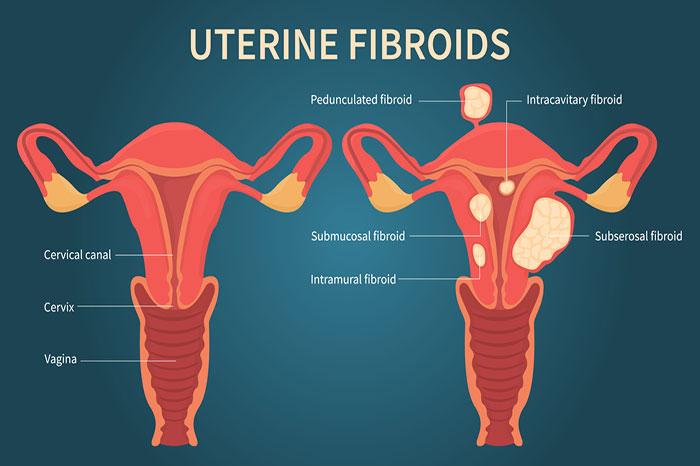
What is Uterine Fibroid & Its Symptoms?
Uterine Fibroids are non-cancerous growth in the uterus. They usually grow during a woman's childbearing years, but can also grow after menopause. Often, it remains asymptomatic and can go unnoticed for long periods of time. When symptoms happen, they include pelvic pain, heavy menstrual bleeding, frequent urination, constipation and bloating.
What causes Uterine Fibroid?
Uterine Fibroids are very common these days due to late marriage, late pregnancy, and avoiding pregnancy for a very long time. Uterine Fibroids begin to develop when cells from the muscular layer of the uterus begin to form benign tumors that overgrow and push against nearby structures such as the bladder or bowels. Factors that make you more likely to get uterine fibroids include: family history of Uterine Fibroids, obesity, physical inactivity and race.
How do I know if I have a Uterine Fibroid?
If you have any of the symptoms listed above it may be a good idea to speak with your gynecologist in Indore about having your uterus checked for growths or tumors. Your doctor can perform a pelvic exam or an ultrasound to see what's going on inside the uterus. If they do find a growth then a biopsy can usually determine whether or not it's a tumor.
What are the treatments for Uterine Fibroid?
The treatment for uterine fibroids depends on the number of fibroids, their size and location in your uterus. The options include: watchful waiting, medication, surgical removal or a hysterectomy.
Which Fibroids Need Removal?
Fibroids, which are very big, need to be removed. Small ones, if present within uterine cavity, need removal as they cause bleeding and infertility. Sometimes, for the treatment of infertility, fibroid removal is also required.
How can I prevent Uterine Fibroid?
Some tips to help prevent Uterine Fibroids are: Exercise regularly, eat healthy foods filled with vitamins and nutrients and maintain a healthy weight.
Are Fibroids a Threat to life?
Uterine Fibroids are not considered a life-threatening condition, but when they get too large they can become problematic. A uterine fibroid grows when cells form in the muscular tissue of the uterus, which is what holds your baby in place during pregnancy. When this flexible muscle becomes too thick it puts pressure on the bladder and intestines, causing difficulties in holding in urine or stool.
